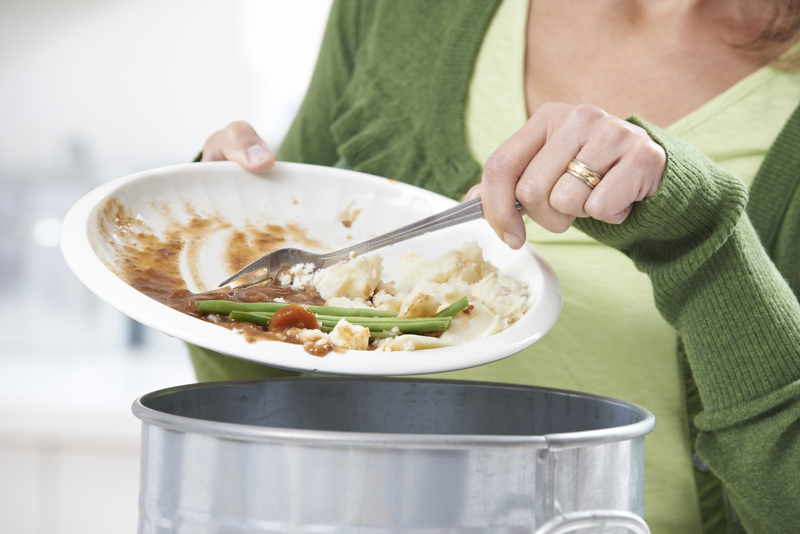Unlock Savings With These Bulky Waste Item Disposal Ideas
Bulky waste items can quickly overrun your home, garage, or business. Items like old furniture, mattresses, large appliances, and other oversized junk are challenging to dispose of efficiently. The temptation might be to toss these items at the curb and let someone else worry about it, but improper disposal can lead to fines, environmental harm, and wasted opportunities for savings.
Fortunately, with a bit of planning and some savvy bulky item disposal ideas, you can both save money and promote sustainability. Read on to discover smart strategies, cost-effective solutions, and eco-friendly options for disposing of bulky waste items without breaking the bank.
Why Responsible Bulky Waste Disposal Matters
Before we delve into money-saving bulky waste disposal ideas, let's look at why getting rid of your large items thoughtfully is important.
- Legal compliance: Many local governments have regulations regarding the disposal of large and hazardous items. Illegal dumping can result in hefty fines.
- Environmental impact: Landfills are filling fast. By reusing, recycling, or donating, you help reduce landfill waste and conserve resources.
- Community cleanliness: Disposing of bulky items improperly can create eyesores and even public health hazards.
With that in mind, here are some expert-backed, wallet-friendly bulky waste disposal techniques to consider.

Best Bulky Item Disposal Ideas for Saving Money
1. Sell Or Donate Usable Items
The best way to unlock savings with bulk waste is simple: don't treat it as waste at all! Many oversized items, such as sofas, wardrobes, or appliances, may still have life left in them. Instead of shelling out cash for removal, turn your trash into someone else's treasure.
- Sell on Online Marketplaces: Platforms like Facebook Marketplace, Craigslist, eBay, and OfferUp are excellent venues to list old furniture, exercise equipment, or appliances. Sometimes, buyers will pick up the item themselves, saving you on transport and disposal fees.
- Hold a Garage Sale: This is perfect for multiple bulky items. It's an efficient way to clear clutter and pocket some extra cash.
- Donate to Charities: Organizations such as Goodwill, Salvation Army, Habitat for Humanity ReStores, or local shelters will often accept, and sometimes even pick up, gently used furniture, electronics, or bedding. Donations can also mean tax deductions!
Tip: *Clean items and take good photos--presentation helps attract more buyers or donors.*
2. Tap Into Local Bulky Waste Collection Days
Most cities and towns offer annual or semi-annual bulky item collection events. Residents can leave items like mattresses, couches, refrigerators, and more at the curb for free or for a small fee. Check your local municipality's waste management website for upcoming collection days.
- Research guidelines: There are often restrictions on the types of items accepted, the number of items, and acceptable sizes.
- Register ahead of time: Some programs require you to schedule pickup or reserve a collection slot in advance.
- Group with neighbors: If fees apply, coordinate with neighbors to split costs for communal pickups.
3. Find Free or Low-Cost Drop-Off Locations
If you have means of transport, consider hauling your bulky waste items to a designated drop-off facility. Many areas have waste transfer stations or recycling centers that accept large waste at minimal cost, especially for residents.
- Check city-run facilities: Many municipalities subsidize disposal costs for locals.
- See if you get free passes: Some cities offer free annual dump passes as part of property taxes or waste services.
- Drop-off during community clean-ups: Participate in community events, which may include free or discounted disposal of large household items.
Key Benefit: By transporting your own waste, you save on collection fees and help ensure proper sorting for recycling and reuse.
4. Rent a Dumpster or Skip Bin (Collaboratively)
Renting a roll-off dumpster or skip bin might seem costly at first glance. However, if you coordinate with neighbors or friends who are also decluttering, the cost per household drops dramatically. Pool resources and maximize savings on bulky waste disposal by filling one container together.
- Compare providers: Rates vary; shop around for best prices.
- Choose the right size: Estimate the total volume of waste to avoid overpaying for unused space.
- Follow rules: Ensure you understand what's allowed in the dumpster to avoid surcharges.
5. Contact Local Scrap Yards or Recyclers
Many oversized items such as broken appliances, bed frames, and exercise equipment contain valuable metal. Scrap yards will often take these items for free--some may even pay you for aluminum, copper, or steel pieces.
- Call before you haul: Different facilities accept different materials; some may require component disassembly.
- Separate materials: Strip non-metal parts for faster processing and better prices.
- Collect small items over time: Amass enough metal to make the trip worthwhile, maximizing payout and minimizing transport costs.
Unlock savings by turning potential waste into cash or free disposal with this eco-smart approach!
6. Look for Manufacturer or Retailer Take-Back Programs
Some retailers and manufacturers offer "haul-away" or take-back programs for large items when you purchase a replacement. For instance, if you're upgrading an appliance or mattress, inquire whether the company can collect the old item for free or at a heavily discounted rate.
- Mattresses: Many mattress retailers include free removal with delivery of a new purchase.
- Appliances: Popular brands, including Best Buy and Home Depot, have recycling or exchange programs for old refrigerators, washers, and electronics.
- Electronics: Some tech stores recycle outdated TVs or computers, preventing e-waste buildup.
7. Hire a Professional Junk Removal Company (The Smart Way)
While it's usually the most expensive option, hiring a junk removal service can save you time, energy, and even money--if done strategically.
- Get multiple quotes: Prices can vary significantly between providers. Ask for upfront pricing and compare.
- Bulk bookings: Schedule pickup for multiple items at once or team up with neighbors to split service costs.
- Ask about eco-friendly disposal: Some companies prioritize donation and recycling, reducing your environmental footprint.
Tip: *Double-check for hidden fees--weight or distance surcharges can add up fast*
Advanced Tips to Reduce the Cost of Bulky Item Disposal
- Disassemble before disposal: Large items are easier (and sometimes cheaper) to dispose of in pieces. Break down beds, tables, or shelving units to fit more in your vehicle or dumpster.
- Reuse creatively: Repurpose furniture or other bulky goods into garden planters, storage, or DIY projects to avoid disposal costs entirely.
- Host a "Curb Alert": Place usable items at your curb with a "free" sign, and post in local Facebook or Nextdoor groups. Often, neighbors or passersby will take the item off your hands--no pickup needed!
- Read community rules: Check HOA or apartment management guidelines before leaving items at the curb to avoid fines and complaints.
Special Considerations for Bulky Waste Disposal
Not all items can be tossed or donated freely. Before you proceed with large waste disposal, keep these extra pointers in mind:
- Hazardous materials: Items containing chemicals, refrigerants (like old fridges), or batteries often require special handling. Contact your local waste authority for guidance.
- Electronics: Many electronics are considered e-waste and shouldn't go in landfills. Use recycling or certified disposal services for TVs, computers, microwaves, and similar items.
- Mattress disposal fees: Some areas levy special surcharges for mattresses or box springs--ask before you drop off!
- Permits for DIY hauling: If you own a truck and haul waste yourself, you may need a vehicle permit for landfill access.

Turn Waste into Opportunity: Eco-Friendly Options
Unlocking savings on bulky waste item disposal isn't just about spending less--it's about creating value for your community and the environment. Here are a few eco-friendly alternatives worth exploring:
- Community "Freecycle" Groups: Online groups dedicated to giving away or finding free things create opportunities for keeping large items out of landfills.
- Upcycle Workshops: Some community centers or workshops offer classes on creatively reusing old furniture or construction materials.
- Art and Theater Donations: Schools, theater companies, or art collectives may want large items for stage sets or repurposing into creative projects.
- Garden and Farm Use: Wooden pallets, barrels, bathtubs, and even sinks can be reused as planters or animal troughs on local farms.
Frequently Asked Questions About Bulky Waste Disposal
1. What counts as "bulky waste"?Bulky waste typically includes large or heavy household objects--furniture, mattresses, carpets, white goods (appliances), garden equipment, and some large electronics.
2. Is it illegal to leave large items on the sidewalk?Often, yes--unless it's a scheduled collection day or you've followed your municipality's guidelines. Illegal dumping can result in fines or even legal action.
3. Can I put bulky waste in my regular bin?No, ordinary curbside waste and recycling bins are usually not allowed to be filled with large or heavy items.
4. How do I find local disposal options?Check your city or county's official waste management website. Search for terms like "bulky item pick up," "large item disposal," or "special waste collection."
Conclusion: Save Money and the Planet With Bulky Waste Disposal Ideas
Unlocking savings with bulky waste item disposal ideas doesn't have to be confusing or expensive. By taking a strategic approach--selling or donating what you can, taking advantage of municipal services, collaborating with neighbors, and choosing eco-friendly outlets--you can reduce costs, avoid fines, and minimize your impact on the environment.
Maximize your savings by planning ahead, getting creative with reuse, and making use of all available local resources. With these tips, turning a disposal headache into an opportunity for savings and sustainability is well within your reach. For more information, contact your local waste authority or recycling center and start decluttering the smart, cost-effective way today!